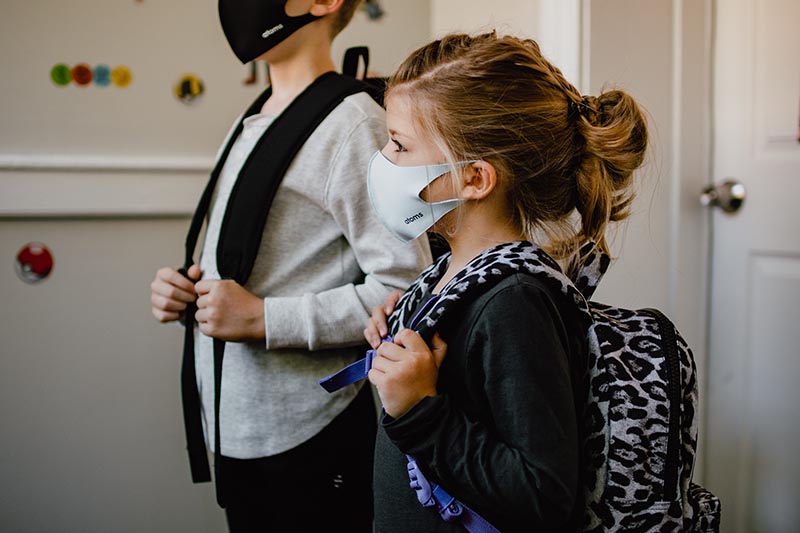 Sometimes, the mental health of our children may be overlooked. If they refuse to do work, we may consider them lazy. When they tell us schoolwork bores them, we may think they lack discipline. With kids, sometimes it’s tricky to determine whether they are misbehaving or if they really are struggling, mentally. As online learning treads on, we know that some kids are coping better than others. We wanted to touch on the importance of the mental health of our children in school. Now, especially.
Sometimes, the mental health of our children may be overlooked. If they refuse to do work, we may consider them lazy. When they tell us schoolwork bores them, we may think they lack discipline. With kids, sometimes it’s tricky to determine whether they are misbehaving or if they really are struggling, mentally. As online learning treads on, we know that some kids are coping better than others. We wanted to touch on the importance of the mental health of our children in school. Now, especially.
What is mental health?
Mental health is something we all have. As we age, we develop skills that help us manage our unpleasant emotions. As adults, we are still learning emotional coping behaviors and rewiring our thought patterns from the past. Simply put, mental health is the overall health of our mind and thoughts. If we are mentally healthy, then we generally feel happy and at ease. Good mental health allows us to get our work done without feeling distracted.
The amount of stress we have in our day to day life is likely to contribute to our mental health and overall quality of life. If we let everything get the best of us, we will not be very happy people. This not only applies to adults but to children as well. If we are constantly stressed, that might mean that we lack the skills to deal with the everyday burdens of life as well as uncontrollable situations. This eventually causes life to become less enjoyable. Eventually, one who is stressed and upset all the time may develop a negative mindset.
School-related things that can affect a child’s stress response (and in some cases mental health)
- An upcoming test or quiz
- Receiving a bad grade or failing an exam
- Not understanding a concept
- Feeling overwhelmed with homework
- Falling behind in their studies
- Not enjoying the material
- Disliking the teacher
- Being bullied
- Having low self-confidence after parents or caretaker call them “stupid” or “dumb”
- Preparing for a presentation
- Dealing with a learning disability
- Managing a physical disability
- Moving to a new school or district
- Lack of socialization (primarily during Covid)
Miscellaneous circumstances that may affect your child’s stress level
- An upcoming decision needs to be made
- A big event is coming up
- There are a lot of things going on at once and time management is needed
- There has been an unexpected change in life (eg. divorced parents, remarried parents, death in family, moving, new baby, etc.)
- Parents arguing
- Problems in a relationship or friendship
What stress might feel like for your child
- Racing thoughts
- Inability to concentrate
- Unable to sleep
- Fast-beating heart/tightness in chest
- Sweating
- Butterflies in the belly/stomach ache (may affecting bowel movements)
- Stuttering
- Headaches
- Nausea
- Low energy
When you talk to your child about what stresses them out, it will be easier to come up with effective solutions and strategies that really work. First, it’s important to maintain a line of open communication with your child. They should be provided with the comfort of knowing that they can always come to you. When children feel safe and understood by their parents/caregivers, they are more likely to open up about their innermost thoughts and feelings.
After discussing with your child about what may be stressing them out, you can incorporate these ideas.

1. Focus on the things you can control.
This sounds like solid advice for anyone. When you tell your child this, it may provide them with a shift in perspective. Making the connection that there is only so much one can control is a solid fact that many adults fail to recognize. When we let go of trying to change other people, circumstances, and events that are out of our hands, we are filled with more peace. We all need to be taught that it is okay to let go of things we do not have control over. The earlier we are introduced to this idea of acceptance of what is, the easier it will be to train our children to think and process their thoughts in a more controlled manner.
It’s helpful to focus with your child on what they can control in each stressful situation they come across. For example, when they are preparing for a big test, you can make a list together of everything they can control before, during, and after this stressful life event.
They can study, prepare in advance, take good notes, and listen closely and carefully to the teacher when they speak. Your child can make the choice to read all questions carefully on the test, come to class prepared, and make sure they eat a good breakfast on the day of the exam. When you help your child break down all the steps they can take that will help them succeed, you are teaching them healthy ways to cope with stress. You are teaching them how to maintain good mental health.
2. Manage Your Time
Kids are often enrolled in extracurricular activities like sports or music or both. When kids have a lot going on at one time, they may get stressed and respond in different ways. When your child has too many things to do and just not enough time, you can train them to manage their time better. You can help them determine what is the most important thing that needs to be done in their schedule. They will learn how to decide what activities they can save for later.
It’s also important that you teach your child that they must take breaks from time to time. Taking time to relax and watch a movie or engage in an activity they truly enjoy is an excellent way to remove stress and maintain excellent mental health.
3. Take Care of Your Body
While many adults are familiar with the term “self-care” and what it includes for them, kids need to be taught this. Many parents give into their children’s demands for junk food and sugary cereal. While we all deserve an indulgent treat from time to time, it’s important to train your child from birth about healthy nutrition.
If nutrition is not something you value or know much about, consider making an appointment with a nutritionist or dietitian that can guide you and your family through consuming a largely plant-based diet. We all know fruits and vegetables are good for us, but kids are often trained to choose chicken fingers and greasy french fries as their favorite meal.
Taking care of our bodies can feel like a full-time job at times. When we fall ill is when we begin to realize we haven’t been sleeping enough or moving our body. Lead by example and teach your child how to adopt a healthy lifestyle from a young age.
4. Use Positive Self Talk on a Daily Basis
Children are very impressionable. If you tell them they’re smart, amazing, wonderful, and perfect, they will believe you. If you knock them down with bitter words, ask them what’s wrong with them, and call them dumb, they will begin to internalize that and believe it, too. Words hurt.
Positive self-talk doesn’t mean you need to praise your child every second of the day. Reprimanding and disciplining your child is essential to teach them about morals and what society expects of them. But when our child does something wrong or makes a mistake, it’s vital to approach the situation with compassion and care.
You can say something like, “This one is incorrect. We will try again. That’s why pencils have erasers.” My students love this a lot, and it helps them realize that everyone who has ever used a pencil needed the eraser on top at one time or another. It helps normalize making mistakes. It lets your child know that they are expected to make mistakes, and that is how we learn.
Positive self-talk might include daily positive affirmations for you and your family. Your child may benefit from having inspirational quotes or posters near their virtual work area to glance at when they feel discouraged.
Sometimes, I’ll have a student who will say they feel stupid because they got something wrong. I quickly turn their frown upside down and talk to them about the importance of mistakes and the process of learning. As a very fun and outgoing teacher, I become very serious whenever a child says something self-deprecating.
I have my students chant and sing, “I am amazing, I am amazing, I am amazing.” We sing like opera singers and wave our arms around in the air. Yes, we do this virtually. And with this simple exercise, I have never had the same student call themselves stupid again. I remind them that they are amazing on a regular basis. I remind them until I know they believe it.
Teach your child to practice positive self talk in their head when they are dealing with stress.

5. Practice Calm Breathing
When we intentionally slow down our breathing, we are able to calm ourselves and think more clearly. When we are calm, we have a better way of completing our tasks and managing our time. This is the same for children.
Introducing simple breathing exercises to kids at a young age can only help them cope with stress, and maintain excellent mental health.
Starfish Breathing: The child will hold their dominant hand up. They will trace their fingers with the index finger of their opposite hand. When they move upwards, they will inhale. When they come back down, they will exhale. This exercise should not be practiced too slow or too fast. The child will find a speed that is just right for them. The child should be instructed to practice this exercise as many times as needed until they feel calm again.
Box Breathing: The student will grab a pencil and piece of paper. They will draw a small stop button on the top left corner of their page. They will draw a line across, down, and then across again to create an evenly-distributed box. Then, they will put their pencil down and lift their pointer finger.
They will begin at the start button and follow along the top line as they breathe in. Then, their finger will slide across the vertical line as they hold their breath for a moment. As they slide their finger across the left, they will exhale. When they move their finger straight up to meet the start button again they will hold their breath once more. The pattern will continue as inhale, hold, exhale, hold for as long as necessary.
We hope you were able to gain some insight on ways that you can teach your children about mental health, and give them skills to cope with stress.
If you're looking for ways to help or challenge your child, consider letting a Genie Academy teacher help. We are passionate, fun, loving, and professional, and our kids really do love coming to class with us, even when its virtual.
Sign up for a free class and assessment here.
-The Genie Academy Team
Sources
https://www.youtube.com/watch?v=3Nf2Pzcketg&ab_channel=Mylemarks
https://www.youtube.com/watch?v=k8FiAxAqqYE&ab_channel=TeenMentalHealth.Org





